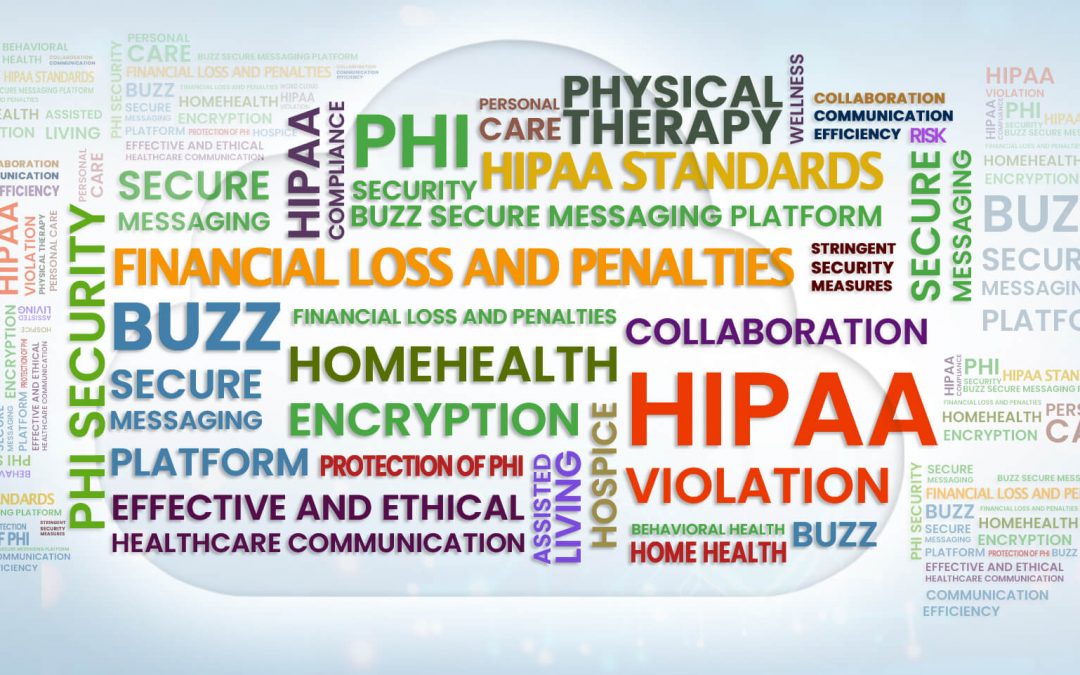Quick Overview: How AI Is Enhancing Healthcare Communication
Artificial intelligence is changing how healthcare teams and patients communicate by automating routine tasks and making clinical information easier to access. AI tools can reduce administrative burden and help care teams share information more efficiently.
-
Workflow Automation: AI reduces time spent on repetitive tasks like notes, messages, and follow-ups.
-
Real-Time Clinical Support: AI tools provide fast access to relevant clinical knowledge for decision making.
-
Reduced Burden: Generative AI helps lighten documentation and communication workload for healthcare staff.
-
Patient Interaction Support: AI can assist with routine patient communication while clinicians focus on complex care.
AI-enhanced communication tools help healthcare teams communicate faster while reducing workload.
Understanding AI’s Role in Healthcare Communication
Close to 44% of the global population (3.5 billion people) rely on messaging apps to communicate today. Unfortunately, traditional consumer SMS, text and even “secure” messaging apps like WhatsApp, Apple Message, or Google Messages’ do not come with safety and security features specifically required to be compliant in the healthcare industry. Still, consumer SMS apps are quite often used for healthcare communication in which Personal Health Information (PHI) is shared, and many individuals don’t understand the level of risk or that this is violation of the law. SMS is a proven time saving, real-time communication tool in healthcare, and MUST be done through a HIPAA-compliant messaging platform. Secure platforms can improve privacy and security while maintaining compliance in such a sensitive industry. Here, we’ll provide even more information regarding the importance of HIPAA compliance in healthcare communication.
I’m not a Doctor or Nurse – Does HIPAA Compliant Communication Apply to Me?
Yes. 100%! HIPAA compliance is not just for medical clinics and hospitals. HIPAA compliance extends to all types of services that hold healthcare information. Physical Therapy, Personal Care, Home Health, Wellness, Behavioral Health, Assisted Living, and many more all fall under HIPAA. Most importantly, ALL providers, staff members (full or part-time), contractors, and third-party partners who come in contact with PHI are subject to HIPAA law, violations, and fines.
My Agency, Facility, or Care Business is Too Small for Violations to be Noticed, Right?
Wrong! We regularly speak to many owners and staff members of large and small Home Health Care, Assisted Living, Hospice and Palliative, Mobile Imaging, PT and Rehabilitation, and Behavioral Health across the country. Many openly operate under the false assumption that their business is too small to be noticed by for the U.S. Department of Health and Human Services (HHS), and the Office for Civil Rights (OCR) who is responsible for enforcing the HIPAA Privacy and Security Rules. That is not how it works.
The OCR is alerted to possible HIPAA violations through complaints logged by those within or close to your business. These can be current and former staff, patients, clients, business partners, anyone who claims to have witnessed a HIPAA breach. This can include disgruntled employees and whistleblowers. Even for companies that are HIPAA compliant, any breach is to be reported by an employee assigned as the security officer.
Home Health Care Communication That Requires HIPAA Compliance
While patient communication requires HIPAA adherence, so does any discussion between other parties. Essentially, any time PHI is discussed, a degree of confidentiality must be involved. For example, the Health Insurance Portability and Accountability Act (HIPAA) requires that sensitive patient data be protected when shared or discussed among:
- Healthcare Providers and Patients — Any time a care giver, staff member, doctor, nurse, or any other employee communicates with a patient, resident or client, outside of face-to-face meetings, it must be done securely in a way that meets HIPAA standards.
- Healthcare Professionals Amongst Themselves — HIPAA compliance must be met when healthcare professionals discuss PHI within their department or collaborate with external departments.
- Healthcare Providers and Insurance Companies—Insurance providers require patient details and sensitive PHI. Still, anything that makes information vulnerable to interception must be fully compliant with HIPAA standards.
- Healthcare Organizations and Third-Party Associates—Third parties that need to handle PHI (e.g., IT consultants, collections agencies, or other vendors) must do so in a way that protects patient data. To safeguard communication, healthcare organizations should ask outside associates, vendors, or agencies to sign a business associate agreement (BAA) and/or Data Processing Agreement (DPA). This is a formal agreement to comply with HIPAA standards and ensure accountability.
- Healthcare Organizations and Public Health Authorities — Some diseases or conditions require healthcare professionals to report to public health authorities (e.g., COVID-19 information during the pandemic). This communication requires stringent security measures and protection of PHI.
Consequences of HIPAA Violations
The consequences of HIPAA violations extend far beyond financial penalties. Mishandling patient data can profoundly impact healthcare organizations, their employees, and the patients they serve. Here are some key examples:
- Financial Loss and Penalties — HIPAA violations can lead to significant financial penalties, with fines ranging from $100 to $50,000 per violation, depending on the severity and whether the organization was aware of the non-compliance.
- Reputational Harm and Loss of Trust — When patients learn that their private information has been compromised, it damages their trust in the organization.
- Lawsuits and Criminal Charges — HIPAA violations can also result in lawsuits from affected patients or even criminal charges in cases of willful neglect.
Remember, lack of awareness of a violation, or not understanding that something was a violation, will not excuse the penalty. Fines can and are assessed due to neglect, which includes not knowing about or understanding the violation.
The Importance of HIPAA Compliance in Healthcare Communication
HIPAA compliance is a cornerstone of effective and ethical healthcare communication. The law not only ensures the confidentiality of sensitive PHI but also fosters trust between patients and healthcare providers. Every instance of communication—whether between a doctor and patient, among healthcare professionals, or involving third-party associates—must adhere to HIPAA standards to mitigate risks such as data breaches, unauthorized access, or misuse of information. Some of the most notable advantages of HIPAA-compliant communication include the following:
Protects Sensitive Information and Patient Privacy
One of the primary goals of HIPAA is to safeguard sensitive patient information. This includes PHI, such as medical histories, test results, and even appointment details. Without proper safeguards, this data could be exposed to unauthorized individuals, leading to an array of problems. HIPAA-compliant communication tools, such as encrypted messaging platforms and secure file-sharing systems, ensure that PHI remains confidential and accessible only to those authorized to view it.
By prioritizing patient privacy, healthcare organizations build trust and foster a sense of security among patients. This can help boost patient satisfaction over time. When individuals feel confident their information is protected, they’re more likely to engage openly with their providers, leading to better health outcomes and a more transparent healthcare experience.
Enhances Communication Efficiency
HIPAA compliance doesn’t just ensure privacy; it makes healthcare communication faster and more effective. Secure messaging platforms allow information to flow seamlessly between patients and providers or within care teams. These tools eliminate the inefficiencies of outdated methods, such as phone tag, by enabling instant, secure communication.
Patient care becomes more streamlined when providers can confidently share updates, clarify instructions, or collaborate on care plans without worrying about compliance issues. This enhanced efficiency benefits healthcare professionals and ensures patients receive timely attention, reducing delays in diagnosis or treatment and improving overall experience.
Strengthens Collaborative Care
Providing high-quality healthcare often involves a team of professionals working together. Whether it is a hospital placing a patient in rehabilitation or home care, coordinating with intake team, care team and providers, collaboration is key. HIPAA-compliant communication tools allow these professionals to securely share critical patient information, ensuring everyone has the details they need to deliver cohesive, well-informed care.
By using secure platforms, healthcare teams can avoid the risks associated with unprotected communication methods like SMS or non-compliant apps. HIPAA compliance creates a reliable framework for sharing information, promoting teamwork, and reducing the chances of miscommunication or errors that could compromise patient outcomes. In this way, secure communication not only meets regulatory requirements but actively strengthens the quality of care.
Maintains Regulatory Compliance
Remaining compliant with HIPAA regulations is essential for any healthcare/homecare organization—not just to avoid penalties but also to uphold the highest standards of patient care. Violations can result in various issues, making compliance a non-negotiable priority.
To reduce the risk of fines and penalties, it’s important to do everything in your power to prevent unauthorized access to PHI. You can maintain regulatory compliance without compromising patient data by adhering to HIPAA-compliant communication methods and using tools like end-to-end encryption and secure messaging apps. While it’s recommended that you take stringent measures to ensure HIPAA compliance in all aspects of your practice/agency, secure messaging platforms created for communication in healthcare industries offer invaluable benefits. Compliance also demonstrates a commitment to ethical practices, strengthening patient and community trust.
Communication Methods to Make HIPAA Compliant
Privacy rules apply to any form of communication that puts patient’s health information at risk. Therefore, all of your healthcare communication tools must adhere to HIPAA. This includes all of the following methods.
- Email Encryption — HIPAA-compliant emails are required to be encrypted and may require written consent from patients.
- Secure Messaging Platforms — HIPAA-compliant messaging is required for any notifications, text messages, or alerts that involve sensitive electronic health records (EHR) or PHI.
- HIPAA-Compliant Voice Calls — Any time a voice channel is used to discuss or share patient information; it must uphold the standards for HIPAA security.
- HIPAA-Compliant Telehealth — Information technology tools such as telehealth appointments require HIPAA compliance.
- Patient Portals — Patient portals should include two-factor authentication methods to achieve compliance and reduce the risk of problems.
- Files Sharing — All files, including anything shared between healthcare professionals or with service providers, require HIPAA compliance.
Ensuring Compliance with HIPAA in Healthcare Communication Platforms
Finding the right solution for healthcare communication can take some serious commitment. You may need to audit what your medical professionals are currently using, adjust access controls, and put a stop to SMS texting. While changing personal habits can be challenging, integrating an all-in-one healthcare communication platform designed with a HIPAA-compliant server can simplify the process.
A Bit About Buzz
Buzz is an all-in-one, real-time HIPAA-compliant clinical collaboration and communication platform. It is accessible via desktop, tablet, and mobile phones messaging platform that enables physicians, caregivers, partners, staff, and nurses to securely deliver and coordinate care from the office, a patient’s home, or while in transit.
With easy access to the entire care delivery team and other groups by smartphone or desktop, home health and hospice staff are equipped for any clinical challenge. Secure communication features allow healthcare workers to coordinate home visits, connect with referring agencies, update family members, and reach other medical professionals for questions, lab results, prescription requests, and more. By offering telehealth capabilities, secure messaging, an AI clinical knowledge base, and streamlined document management, Buzz by Skyscape empowers healthcare professionals to deliver high-quality care with greater convenience and effectiveness. Visit our FAQ page or contact us to learn more about Buzz by Skyscape today.

